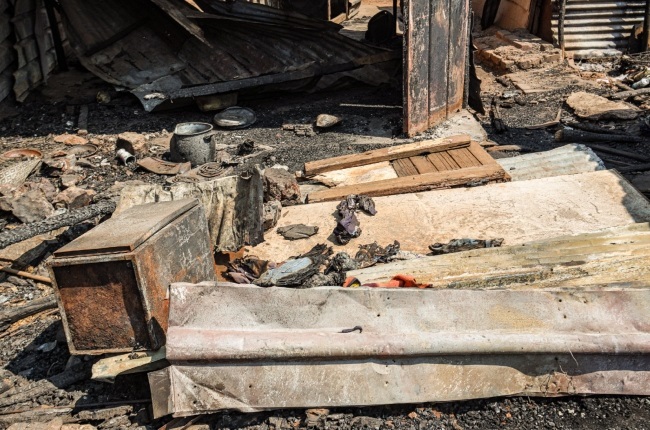
When a child is not cared for, so many things could go wrong.
The younger they are, the worse the effects tend to be.
It all starts with one thing then it leads to another. Before a caregiver knows it, the signs are so loud that people start to pick up on them.
Whether this be not giving a child food, not bathing them or leaving them to fend for themselves, a guardian’s actions not only affect the child physically but mentally and emotionally.
Given the addition of a child negligence charge in the case of two Machaka sisters who went to a nearby tavern in Laudium, Pretoria and left five children aged eight, six, four, two and one in no one’s care, Drum unpacks the concept of child negligence.
According to the Machakas’ youngest sister, Ntombi Masango who was at work when the incident happened, it wasn’t the first time that the two had allegedly left the kids to go drink alcohol.
In fact, she had taken note of the negligence and promised to take the youngest kids back to Mhlanga Mpumalanga, where they are originally from.
Read More | Shack fire: Pretoria sisters to remain in custody until Friday
By law, a child in need of parental care is anyone below the age of 18 and by definition, child neglect refers to “any interaction or lack of interaction by a parent or caregiver to provide for a child’s basic needs physically, emotionally, intellectually and psychologically which would lead to possible harm of the child,” says social worker, Sphiwe Mashiane.
Sphiwe tells Drum that “It is important to first note that neglect is usually but not always characterised by an ongoing pattern of failing to provide adequate care and this pattern is often identified by members of community, teachers, medical professionals and others.”
She adds that a caregiver’s visible failure to meet needs such as nourishment, health care, clothing and shelter tend to be the first signs of trouble.
“How it would look for example is a child would not come to school consistently or not be enrolled into school when they’re of school going age. Another example is a malnourished child, where the stages of development or age are incongruent with the child’s physical appearance. It can also be detected by abandonment and a lack of supervision of the child. This may for example look like a child living on the streets or a child playing in dangerous areas or with dangerous items such as poison. Or a child being locked in the house for whatever reason without adult supervision.
“Another sign of neglect which is often missed because it doesn’t manifest physically is emotional and psychological neglect. And this can be detected by a withdrawal, lack of participation or a sudden change in the behaviour of the child,” she adds.
After detecting these signs, Sphiwe urges anyone and everyone to report it. Usually, neighbours are afraid to report because they are avoiding being the cause of conflict but unfortunately, the children are the ones paying the price for this.
“Our communities should know that they can save so many children and that they have the option to remain anonymous when reporting such cases. In the same breath it’s important for our communities to realise how much resources are put into following up on such cases and that reporting child neglect should not be used as a tool to settle scores with neighbours,” she says.
This is in line with section 110 of the Children’s Amendment Act which states that it is mandatory for people in these professions - any correctional official, dentist, homoeopath, immigration official, labour inspector, legal practitioner, medical practitioner, midwife, minister of religion, nurse, occupational therapist, physiotherapist, psychologist, religious leader, social service professional, social worker, speech therapist, teacher, traditional health practitioner, traditional leader or member of staff or volunteer worker at a partial care facility, drop-in centre or child and youth care centre – to report a possible case of child abuse, neglect or maltreatment.
To report, people may call social workers through the Department of Social Development, Child Welfare, NGOs that handle child protection cases and Child Line. The South African Police may also be contacted especially in situations where children lives are exposed to an immediate threat.
Following reports, Sphiwe says investigations are carried out at two different levels of authority which will determine whether the child may be discharged back to their premorbid home or whether they will be removed to a place of safety, usually a foster home.
When Sphiwe heard about this particular case involving five children burning to death in a shack while they were meant to be under their mothers’ care, “I was shattered both from a personal perspective and a professional perspective at the innocent lives lost. As a professional there are honestly so many elements to consider, the situation could have been avoided had intervention from child protection services been involved sooner.”
“As a social worker I am also inclined to argue that with proper adequate housing, perhaps the children would have survived the fire, without referring to the specific home the children died in we know that most shacks are insulated with cardboard and stuffed with plastics to prevent cold air from entering however, these are highly flammable materials which in danger the lives of dwellers,” she adds.
The children will be buried on Sunday, 17 September.



















